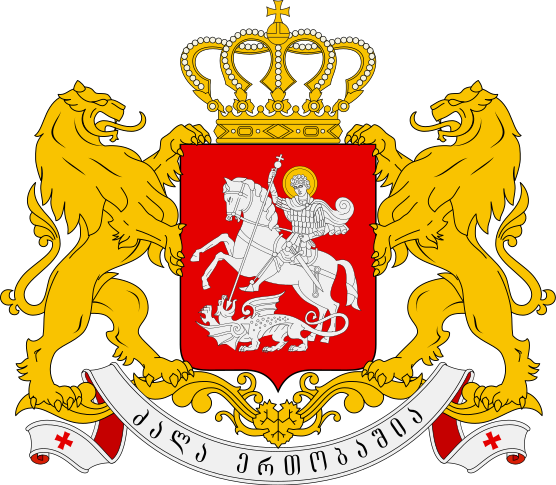Location
Georgia is a country in the Caucasus region of Eurasia, located at the crossroads of Western Asia and Eastern Europe. After a brief period of independence following the Russian Revolution of 1917, Georgia was occupied by Soviet Russia in 1921, becoming the Georgian Soviet Socialist Republic and part of the Soviet Union. After independence in 1991, post-communist Georgia suffered from civil unrest and economic crisis for most of the 1990s. This lasted until the Rose Revolution of 2003, after which the new government introduced democratic and economic reforms.
Government type: semi-presidential republic
The Cabinet of Georgia is an executive council of government ministers in Georgia. It is headed by the Prime Minister of Georgia. In the cases of utmost importance, the meetings may be led by the President of Georgia.
from wikipedia (Georgia (country) and Government of Georgia)
Members:
Resources
Displaying 26 - 30 of 30Law No. 3512-bc “On public property”.
This Law establishes that public property can be movable and immovable objects, including plots of agricultural land and public forest. It establishes the terms and conditions for privatization of public property. Privatization of public property shall be performed in accordance with purchase and sale contracts. The following objects of public property shall not be subject to privatization: (a) subsoil; (b) water resources; (c) territorial water; (d) continental shelf; (e) state forest fund; (f) protected areas; (g) national parks; and (h) objects of cultural heritage.
Law No. 5485-IIs “On setting up protected area of the Imereti caves and management thereof”.
This Law regulates legal relations in the sphere of setting up and management of the system of protected areas of the Imereti caves, related to management of land area, forests, water and other natural resources, including historical and cultural heritage. The scope of this Law shall be to ensure setting up of protected area, regulation of the management mechanism thereof and conservation of unique natural ecosystem. It classifies categorization of the caves, gives mapping and location of different caves.
Law No. 5274-vs “On acknowledgement of the right of ownership to land plots pertaining to the ownership (tenancy) of natural and legal persons of private law.
The scope of this Law shall be acknowledgement of the right of ownership to land plots pertaining to the ownership (tenancy) of natural and legal persons of private law. It shall be also applicable to unauthorized land seizure related to the plots of land pertaining to public land. This Law establishes plenary powers of state bodies representing the interests of the state in the process of acknowledgement of the right of ownership.
Law No. 5486-IIs “On status of protected areas”.
This Law regulates legal issues related to status, land area, boundaries and particulars of management and functioning of protected areas. It is related to protected areas that include unique natural ecosystems containing land area, forested areas, water areas and objects of historical and cultural heritage. It contains mapping of the boundaries of various protected areas and zoning of their territory.
Law No. 5277-vs “On condominiums”.
This Law regulates relations concerning management of common property of condominiums, including common ownership of land on which are located residential facilities. Encumbrance (mortgage) of common property, including common land property shall be authorized and regulated by Civil Code. Establishment and modification of mapping of the boundaries of common land property shall be regulated by acting legislation.


